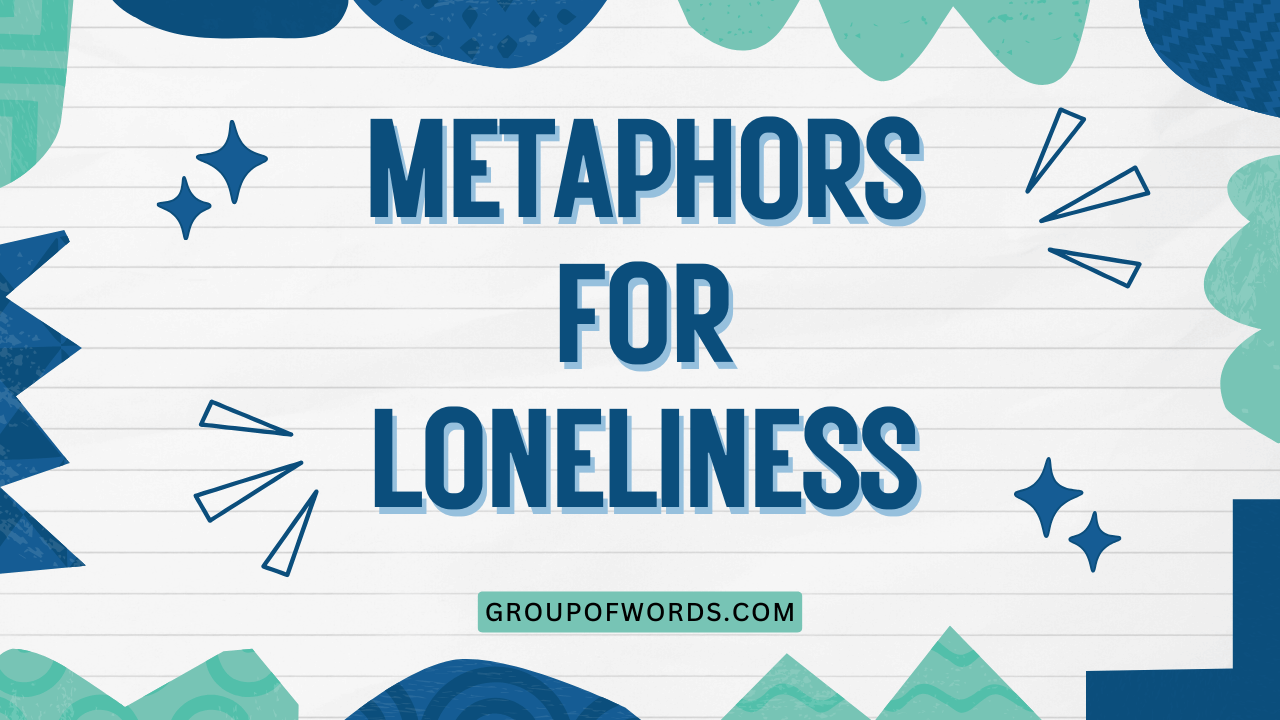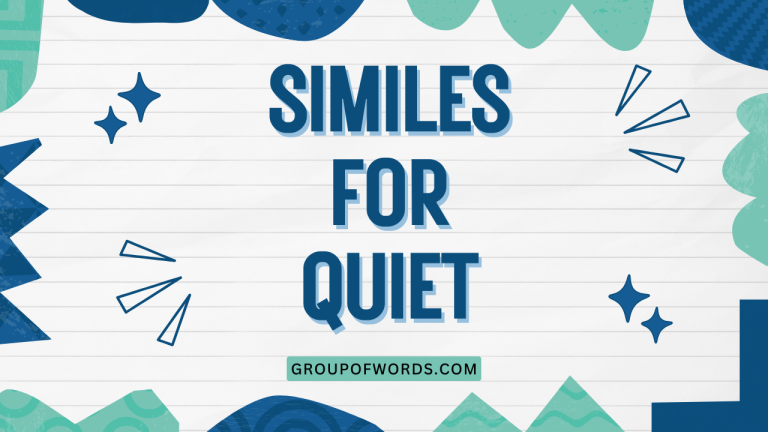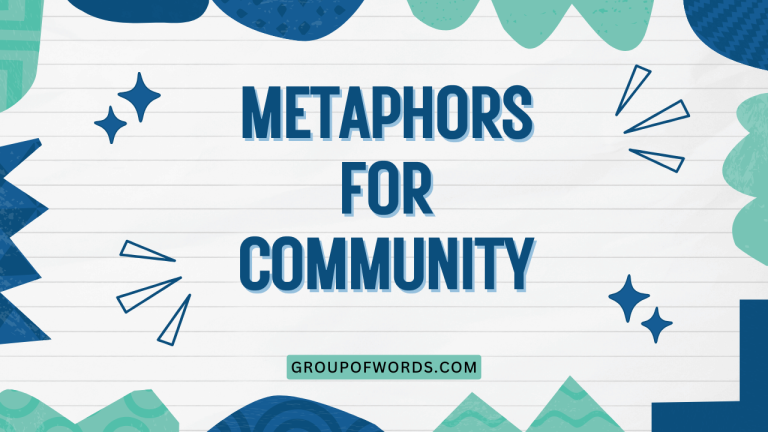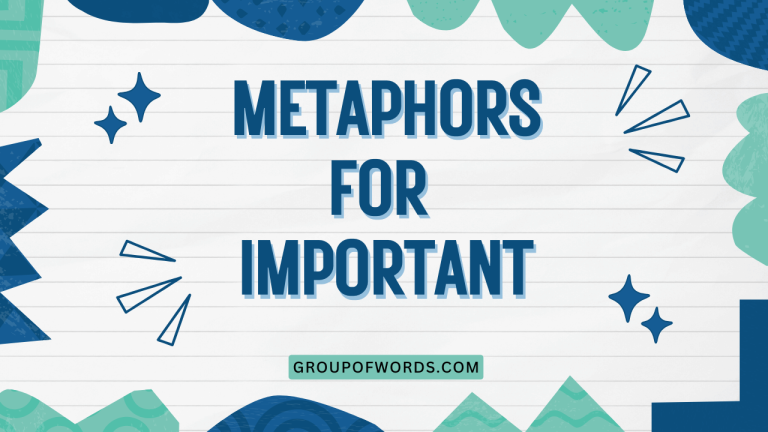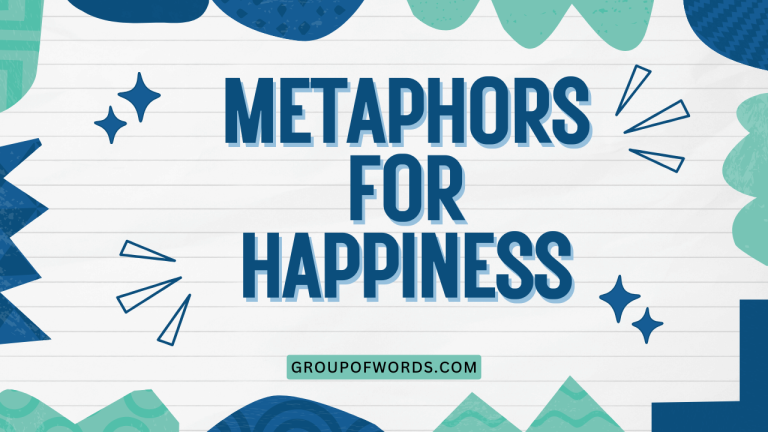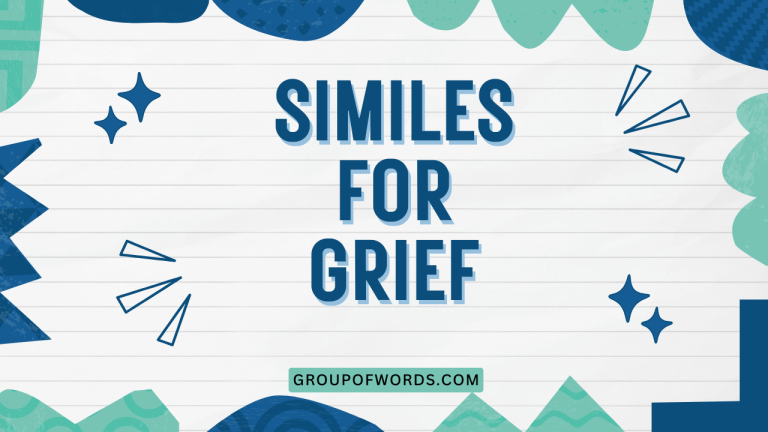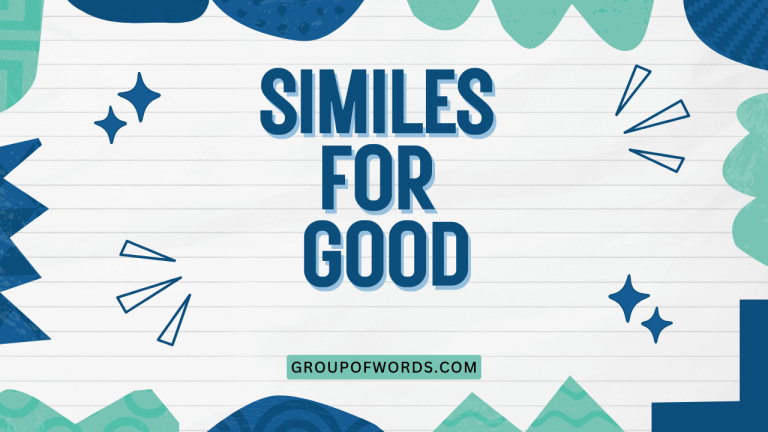Metaphors for Loneliness: A Comprehensive Guide
Loneliness is a universal human experience, yet it’s often difficult to articulate. Metaphors provide a powerful way to express the nuanced feelings associated with being alone.
Understanding these metaphors not only enhances our comprehension of literature and poetry but also improves our ability to communicate our own emotions and empathize with others. This guide explores the diverse range of metaphors used to describe loneliness, providing definitions, examples, and exercises to deepen your understanding.
This article is designed for English language learners of all levels, from intermediate to advanced, and anyone interested in exploring the rich tapestry of figurative language.
Table of Contents
- Introduction
- Definition of Metaphor and Loneliness
- Structural Breakdown of Loneliness Metaphors
- Types and Categories of Loneliness Metaphors
- Examples of Loneliness Metaphors
- Usage Rules for Loneliness Metaphors
- Common Mistakes When Using Loneliness Metaphors
- Practice Exercises
- Advanced Topics: Extended Metaphors and Symbolism
- FAQ
- Conclusion
Definition of Metaphor and Loneliness
A metaphor is a figure of speech that directly compares two unlike things without using “like” or “as.” It asserts that one thing *is* another, creating a vivid and often surprising connection. Metaphors are essential tools for writers and speakers because they allow complex ideas and emotions to be expressed in a concise and relatable way.
Loneliness is a complex emotional state characterized by feelings of isolation, disconnection, and a lack of meaningful social relationships. It’s not simply about being alone; it’s about the perceived discrepancy between desired and actual social connections. Loneliness can affect anyone, regardless of age, social status, or personality.
Structural Breakdown of Loneliness Metaphors
Loneliness metaphors typically operate by associating the feeling of loneliness with a tangible object, place, or experience. The structure often involves a subject (the person experiencing loneliness) and a metaphorical predicate that describes their state.
This predicate usually evokes feelings of isolation, emptiness, or disconnection.
For example, in the metaphor “My heart is a lonely hunter,” the subject is “my heart,” and the metaphorical predicate is “a lonely hunter.” This suggests that the heart is actively searching for connection but unable to find it, mirroring the experience of loneliness.
Analyzing loneliness metaphors involves identifying the tenor (the subject being described, i.e., loneliness) and the vehicle (the object or concept used to represent loneliness). Understanding this relationship helps to unpack the meaning and emotional impact of the metaphor.
Types and Categories of Loneliness Metaphors
Loneliness metaphors can be categorized based on the specific imagery and emotions they evoke. Here are some common categories:
Metaphors of Isolation
These metaphors emphasize the feeling of being cut off from others, separated by physical or emotional barriers. They often involve images of solitude, remoteness, and detachment.
Metaphors of Emptiness
These metaphors focus on the sense of hollowness, lack of fulfillment, and inner void associated with loneliness. They often use imagery of empty spaces, barren landscapes, and absent objects.
Metaphors of Darkness
These metaphors associate loneliness with feelings of sadness, despair, and hopelessness. They often employ images of shadows, night, and gloom to convey the oppressive nature of loneliness.
Metaphors of Weather
These frequently use weather elements to symbolize loneliness. Coldness, storms, and fogs are all common ways to reflect the emotional state.
Physical Metaphors
These metaphors translate the emotional experience of loneliness into physical sensations, such as a heavy weight, a sharp pain, or a feeling of being frozen.
Examples of Loneliness Metaphors
The following tables provide numerous examples of loneliness metaphors, organized by category. Each example is designed to illustrate the specific type of imagery and emotional resonance associated with that category.
This first table focuses on metaphors of isolation, highlighting the feeling of being separated and cut off from others. Notice the recurring themes of distance and barriers.
| Metaphor | Explanation |
|---|---|
| I’m an island in a sea of faces. | Describes feeling isolated despite being surrounded by people. |
| He felt like a lone wolf. | Implies a solitary existence, choosing to be alone or forced into it. |
| She was a ship lost at sea. | Conveys a sense of being adrift and without direction or connection. |
| My heart is a solitary cell. | Suggests imprisonment and confinement within one’s own emotions. |
| The silence was a wall between them. | Highlights the barrier to communication and connection. |
| He lived in a bubble of isolation. | Describes being protected from external contact, but also trapped. |
| She felt like a ghost in her own life. | Implies being present but unseen and disconnected from reality. |
| His words were echoes in an empty room. | Highlights the lack of response and validation. |
| The city was a maze of strangers. | Conveys feeling lost and anonymous in a crowd. |
| I am a dot in the vast universe. | Emphasizes insignificance and isolation on a cosmic scale. |
| He was a stranger in a strange land. | Highlights the feeling of being out of place and unfamiliar. |
| She felt like an alien among humans. | Implies a fundamental difference and inability to connect. |
| My soul is a remote cabin in the woods. | Suggests a deliberate retreat from society and connection. |
| The world is a stage, and I’m backstage. | Conveys a sense of being an observer rather than a participant. |
| He was a forgotten book on a dusty shelf. | Highlights being ignored and overlooked. |
| She felt like a single tree in a barren desert. | Implies a lack of support and nourishment. |
| My thoughts are prisoners in my mind. | Suggests being trapped by one’s own internal world. |
| The party was a sea of unfamiliar faces. | Emphasizes the feeling of being surrounded by strangers. |
| He was a lighthouse keeper on a deserted island. | Highlights a sense of duty and isolation. |
| She felt like a satellite orbiting a distant planet. | Implies a lack of close connection and emotional distance. |
| I’m a pebble on an endless beach. | Highlights insignificance and anonymity. |
| He was a scarecrow in a field of crows. | Conveys a sense of being exposed and vulnerable. |
| She felt like a lone star in the night sky. | Implies beauty and uniqueness, but also isolation. |
| My voice is a whisper in the wind. | Suggests being unheard and unheeded. |
| The city is a concrete jungle, and I’m lost in it. | Emphasizes feeling overwhelmed and alone in an urban environment. |
This next table presents metaphors of emptiness, focusing on the feeling of hollowness and lack of fulfillment. Note the use of words like “void,” “hollow,” and “barren.”
| Metaphor | Explanation |
|---|---|
| My heart is an empty room. | Conveys a sense of hollowness and lack of emotional warmth. |
| He felt like a hollow shell. | Implies a lack of inner substance and vitality. |
| She was a barren field. | Suggests an inability to nurture or produce anything meaningful. |
| My soul is a bottomless pit. | Highlights the insatiable need for connection and fulfillment. |
| His words were empty promises. | Conveys a lack of sincerity and substance. |
| The silence was a gaping void. | Emphasizes the overwhelming absence of sound and connection. |
| She felt like a deflated balloon. | Implies a loss of energy and enthusiasm. |
| His life was an unwritten book. | Suggests a lack of purpose and direction. |
| The laughter was a hollow echo. | Conveys a lack of genuine joy and connection. |
| My dreams are empty calories. | Highlights the lack of real nourishment and fulfillment. |
| He was a ghost of his former self. | Implies a loss of identity and vitality. |
| She felt like a broken vase. | Suggests being damaged and unable to hold anything valuable. |
| His heart was a locked box. | Conveys inaccessibility and emotional detachment. |
| The city was a concrete desert. | Emphasizes the lack of warmth and human connection. |
| She felt like an empty canvas. | Implies a lack of identity and purpose. |
| His words were like dust in the wind. | Conveys insignificance and fleetingness. |
| The silence was a heavy blanket. | Emphasizes the oppressive weight of isolation. |
| She felt like a blank page. | Suggests a lack of experience and knowledge. |
| His heart was a dried-up well. | Conveys a lack of emotional resources and vitality. |
| The world was a stage, but the actors had left. | Emphasizes the absence of meaningful interaction. |
| I am an empty glass, waiting to be filled. | Highlights the need for connection and fulfillment. |
| He was a shadow without a source. | Conveys a lack of substance and identity. |
| She felt like a forgotten song. | Implies being overlooked and unappreciated. |
| My spirit is a withered flower. | Suggests a loss of vitality and beauty. |
| The future is a blank canvas, and I have no colors. | Emphasizes the lack of direction and inspiration. |
This table focuses on metaphors of darkness, which evoke feelings of sadness, despair, and hopelessness associated with loneliness. Pay attention to the use of words like “shadow,” “night,” and “gloom.”
| Metaphor | Explanation |
|---|---|
| Loneliness is a dark shadow. | Suggests that loneliness follows a person, constantly looming over them. |
| My heart is a night without stars. | Conveys a sense of hopelessness and lack of joy. |
| She was lost in a sea of shadows. | Implies being overwhelmed by negativity and despair. |
| His soul was a dark and stormy night. | Highlights inner turmoil and emotional distress. |
| Loneliness is a bottomless abyss. | Emphasizes the overwhelming depth and despair of loneliness. |
| My world is a perpetual twilight. | Conveys a sense of gloom and uncertainty. |
| She felt like a prisoner in the darkness. | Implies being trapped by her own negative emotions. |
| His thoughts were dark clouds. | Highlights the negativity and oppressiveness of his thoughts. |
| Loneliness is a heavy cloak. | Suggests that loneliness weighs a person down, making it difficult to move forward. |
| My spirit is a dying ember. | Conveys a sense of fading hope and vitality. |
| She felt like a shadow of her former self. | Implies a loss of identity and vitality. |
| His heart was a tomb. | Conveys a sense of death and emotional stagnation. |
| Loneliness is a suffocating darkness. | Emphasizes the overwhelming and oppressive nature of loneliness. |
| My dreams are nightmares in disguise. | Highlights the negativity and fear associated with loneliness. |
| She felt like a wilted flower. | Suggests a loss of beauty and vitality. |
| His words were daggers in the dark. | Conveys the pain and harm caused by loneliness. |
| Loneliness is a cold and empty space. | Emphasizes the lack of warmth and connection. |
| My future is a dark and uncertain path. | Highlights the lack of hope and direction. |
| She felt like a ghost haunting her own life. | Implies being present but unseen and disconnected. |
| His heart was a locked room, filled with shadows. | Conveys inaccessibility and emotional darkness. |
| Loneliness is a monster under the bed. | Emphasizes the fear and anxiety associated with loneliness. |
| My soul is a graveyard of forgotten dreams. | Highlights the loss of hope and ambition. |
| She felt like a broken mirror, reflecting only darkness. | Implies a distorted and negative self-image. |
| His thoughts were like poison, slowly killing him. | Conveys the destructive power of negative thoughts. |
| Loneliness is a prison without walls. | Emphasizes the feeling of being trapped by one’s own emotions. |
The following table explores metaphors of weather, using elements like rain, fog, and storms to depict the emotional landscape of loneliness. Consider how these weather patterns reflect internal feelings.
| Metaphor | Explanation |
|---|---|
| Loneliness is a cold rain. | Conveys a bleak and penetrating feeling of sadness. |
| My heart is a stormy sea. | Highlights inner turmoil and emotional unrest. |
| She was lost in a fog of despair. | Implies being disoriented and unable to see a way out. |
| His soul was a frozen tundra. | Conveys a sense of emotional coldness and barrenness. |
| Loneliness is a relentless blizzard. | Emphasizes the overwhelming and unforgiving nature of loneliness. |
| My thoughts are thunderclouds. | Highlights the negativity and oppressiveness of his thoughts. |
| She felt like a fallen leaf in the wind. | Implies being adrift and without direction. |
| His words were a gentle breeze in a hurricane. | Conveys insignificance and ineffectiveness. |
| Loneliness is a drought in the soul. | Emphasizes the lack of emotional nourishment and vitality. |
| My spirit is a withered plant in the desert. | Suggests a loss of vitality and hope. |
| She felt like a raindrop in the ocean. | Implies insignificance and anonymity. |
| His heart was a frozen lake. | Conveys emotional coldness and inaccessibility. |
| Loneliness is a perpetual winter. | Emphasizes the prolonged and unchanging nature of loneliness. |
| My dreams are mirages in the desert. | Highlights the illusion and unattainability of happiness. |
| She felt like a snowflake melting in the sun. | Implies fragility and impermanence. |
| His words were a distant thunder. | Conveys a sense of impending doom and negativity. |
| Loneliness is a heavy fog, obscuring the path. | Emphasizes the difficulty of finding direction and purpose. |
| My future is a storm on the horizon. | Highlights the uncertainty and fear associated with loneliness. |
| She felt like a solitary cloud in the sky. | Implies isolation and detachment. |
| His heart was a parched earth, longing for rain. | Conveys a deep need for emotional nourishment and connection. |
| Loneliness is a chilling wind that never stops blowing. | Emphasizes the relentless and pervasive nature of loneliness. |
| My soul is a barren wasteland. | Highlights the lack of vitality and hope. |
| She felt like a fallen tree in a hurricane. | Implies being overwhelmed and powerless. |
| His thoughts were like hailstones, pelting him with negativity. | Conveys the pain and harm caused by negative thoughts. |
| Loneliness is a flood that threatens to drown me. | Emphasizes the overwhelming and destructive power of loneliness. |
This final table explores physical metaphors for loneliness, translating the emotional experience into tangible sensations. Note how these metaphors use physical feelings to convey emotional states.
| Metaphor | Explanation |
|---|---|
| Loneliness is a heavy weight on my chest. | Conveys the oppressive and burdensome nature of loneliness. |
| My heart is a clenched fist. | Highlights inner tension and emotional pain. |
| She felt like she was drowning in silence. | Implies being overwhelmed and suffocated by loneliness. |
| His soul was a gaping wound. | Conveys a deep and persistent emotional pain. |
| Loneliness is a constant ache in my bones. | Emphasizes the persistent and pervasive nature of loneliness. |
| My thoughts are a tangled knot in my stomach. | Highlights the anxiety and unease associated with loneliness. |
| She felt like she was walking through molasses. | Implies a sense of being slowed down and hindered by loneliness. |
| His words were a slap in the face. | Conveys the pain and hurt caused by loneliness. |
| Loneliness is a tightrope walk without a net. | Emphasizes the precariousness and vulnerability of loneliness. |
| My spirit is a fragile egg. | Suggests vulnerability and the risk of being easily broken. |
| She felt like she was trapped in a cage. | Implies being confined and unable to escape loneliness. |
| His heart was a lead balloon. | Conveys a sense of heaviness and lack of joy. |
| Loneliness is a burning fire in my soul. | Emphasizes the intense and consuming nature of loneliness. |
| My dreams are chains that bind me. | Highlights the restrictions and limitations imposed by loneliness. |
| She felt like she was carrying the world on her shoulders. | Implies being burdened and overwhelmed by loneliness. |
| His words were a punch to the gut. | Conveys the pain and impact of loneliness. |
| Loneliness is a knife twisting in my heart. | Emphasizes the sharp and agonizing pain of loneliness. |
| My future is a mountain I can’t climb. | Highlights the obstacles and challenges posed by loneliness. |
| She felt like she was being crushed by the weight of the world. | Implies being overwhelmed and suffocated by loneliness. |
| His heart was a fragile glass, easily shattered. | Conveys vulnerability and the risk of emotional damage. |
| Loneliness is a scar that never fades. | Emphasizes the lasting impact and pain of loneliness. |
| My soul is a delicate flower, easily bruised. | Highlights vulnerability and the need for care and protection. |
| She felt like she was walking on eggshells. | Implies a sense of anxiety and fear of causing offense. |
| His thoughts were like thorns, pricking him with pain. | Conveys the sharp and persistent pain caused by negative thoughts. |
| Loneliness is a rope that binds me. | Emphasizes the feeling of being trapped and restricted by loneliness. |
Usage Rules for Loneliness Metaphors
When using metaphors for loneliness, consider the following rules:
- Clarity: Ensure the metaphor is clear and understandable. The connection between the tenor (loneliness) and the vehicle (the object or concept used to represent it) should be evident.
- Relevance: Choose metaphors that are relevant to the specific context and the emotions you want to convey.
- Originality: Strive for originality and avoid clichés. Fresh and unexpected metaphors are more impactful.
- Consistency: Maintain consistency within your metaphors. Avoid mixing metaphors that clash or create confusing imagery.
- Audience: Consider your audience and choose metaphors that they will understand and appreciate.
Common Mistakes When Using Loneliness Metaphors
Here are some common mistakes to avoid when using metaphors for loneliness:
| Incorrect | Correct | Explanation |
|---|---|---|
| My loneliness is like a rock. | My loneliness is a heavy rock on my heart. | The corrected version is more specific and evocative. |
| He felt lonely like an island. | He was an island, isolated from the mainland. | The corrected version removes the simile and creates a direct comparison. |
| The emptiness was a color. | The emptiness was a bleak, gray canvas. | The corrected version provides more detail and imagery. |
| She felt like a sad person in a room. | She was a solitary figure in a vast, empty hall. | The corrected version uses more figurative and descriptive language. |
| His heart was a weather. | His heart was a stormy sea. | The corrected version provides a specific weather element. |
Practice Exercises
Test your understanding of loneliness metaphors with these exercises.
Exercise 1: Identify the Metaphor
Identify the metaphor in each sentence and explain its meaning.
| Question | Answer |
|---|---|
| 1. My heart is a locked room. | Metaphor: “locked room.” Meaning: inaccessible, emotionally closed off. |
| 2. She felt like a ghost in her own life. | Metaphor: “ghost.” Meaning: unseen, disconnected, without substance. |
| 3. Loneliness is a heavy cloak. | Metaphor: “heavy cloak.” Meaning: burdensome, oppressive, weighing her down. |
| 4. His soul was a frozen tundra. | Metaphor: “frozen tundra.” Meaning: barren, cold, lacking warmth. |
| 5. The silence was a gaping void. | Metaphor: “gaping void.” Meaning: empty, overwhelming absence. |
| 6. I am an island in a sea of faces. | Metaphor: “island.” Meaning: isolated, alone, disconnected from others. |
| 7. She was a ship lost at sea. | Metaphor: “ship lost at sea.” Meaning: adrift, without direction, lost. |
| 8. Loneliness is a dark shadow. | Metaphor: “dark shadow.” Meaning: ominous, haunting, oppressive. |
| 9. My dreams are empty calories. | Metaphor: “empty calories.” Meaning: unsatisfying, lacking substance, unfulfilling. |
| 10. He felt like a hollow shell. | Metaphor: “hollow shell.” Meaning: empty, lacking substance, without inner vitality. |
Exercise 2: Create Your Own Metaphors
Create your own metaphor for loneliness based on the given categories.
| Category | Your Metaphor |
|---|---|
| Isolation | I am a lone astronaut drifting in space. |
| Emptiness | My spirit is an abandoned theater after the final act. |
| Darkness | Loneliness is a moonless night, devoid of light. |
| Weather | My heart is a frozen lake, unthawed by any warmth. |
| Physical | Loneliness is a tight band squeezing my chest. |
| Animal | I am a caged bird, unable to fly free. |
| Object | My soul is a broken compass, unable to find its way. |
| Place | Loneliness is an empty city, echoing with silence. |
| Food | My life is a tasteless meal, lacking any flavor. |
| Color | Loneliness is a dull gray, devoid of vibrancy. |
Exercise 3: Rewrite with Metaphors
Rewrite the following sentences using metaphors to describe loneliness.
| Original Sentence | Rewritten Sentence with Metaphor |
|---|---|
| 1. He felt very alone. | He was a lone tree on a windswept hill. |
| 2. She was disconnected from others. | She was a satellite orbiting a distant planet. |
| 3. The room was empty and quiet. | The room was a tomb, filled with suffocating silence. |
| 4. He was sad and hopeless. | His soul was a dark and stormy night. |
| 5. She felt like she didn’t belong. | She was an alien in a world of humans. |
| 6. He lacked emotional warmth. | His heart was a frozen wasteland. |
| 7. She was ignored by everyone. | She was a forgotten book on a dusty shelf. |
| 8. He felt trapped by his loneliness. | He was a prisoner in a cell of solitude. |
| 9. She felt insignificant and small. | She was a grain of sand on an endless beach. |
| 10. He was searching for connection but couldn’t find it. | His heart was a lonely hunter, forever searching for prey. |
Advanced Topics: Extended Metaphors and Symbolism
Extended metaphors are sustained metaphors that are developed over several lines or paragraphs. They allow for a more detailed and nuanced exploration of the subject matter. For example, an extended metaphor for loneliness might describe a long and arduous journey through a desolate landscape, with each element of the landscape representing a different aspect of loneliness.
Symbolism is the use of objects, people, or events to represent abstract ideas or qualities. Symbols often overlap with metaphors, but they tend to be more culturally specific and widely recognized. For example, a wilting flower might symbolize loneliness and decay, while a solitary tree might symbolize strength and resilience in the face of isolation.
Analyzing literary works for extended metaphors and symbolism can provide deeper insights into the author’s understanding and portrayal of loneliness. Consider how authors use these devices to evoke specific emotions and create a lasting impact on the reader.
FAQ
Here are some frequently asked questions about metaphors for loneliness:
- What is the difference between a metaphor and a simile?
A metaphor directly compares two unlike things, stating that one *is* the other. A simile uses “like” or “as” to make a comparison, suggesting a resemblance rather than a direct equivalence. For example, “Loneliness is a prison” is a metaphor, while “Loneliness is *like* a prison” is a simile.
- Why are metaphors useful for describing loneliness?
Metaphors provide a concrete way to express the abstract and often elusive feelings associated with loneliness. They allow us to understand and relate to loneliness in a more tangible and emotional way.
- How can I improve my ability to understand and use metaphors?
Read widely, pay attention to the metaphors used by others, and practice creating your own metaphors. Experiment with different types of imagery and explore the emotional resonance of various comparisons.
- Are there any cultural differences in the way loneliness is metaphorically expressed?
Yes, cultural backgrounds can influence the specific metaphors used to describe loneliness. Certain images or symbols may resonate more strongly in certain cultures due to shared experiences and beliefs. For example, a metaphor related to the desert might be more powerful in a culture that has a deep connection to arid landscapes.
- Can a metaphor be too complex or confusing?
Yes, a metaphor can be ineffective if it is too obscure or difficult to understand. The connection between the tenor and the vehicle should be relatively clear to the intended audience. Avoid using metaphors that are overly abstract or require specialized knowledge.
- How do I avoid using clichés in my metaphors for loneliness?
Strive for originality and creativity. Think beyond the obvious comparisons and explore unexpected connections. Consider using specific details and sensory imagery to make your metaphors more vivid and unique.
- What role does context play in interpreting metaphors for loneliness?
Context is crucial for understanding the intended meaning of a metaphor. The surrounding text or situation can provide clues about the specific emotions and experiences being conveyed. Pay attention to the overall tone and theme of the work in which the metaphor is used.
- How can understanding loneliness metaphors help me empathize with others?
By recognizing the diverse ways in which loneliness can be expressed, you can develop a deeper understanding of the emotional experiences of others. This can foster empathy and compassion, allowing you to connect with people on a more meaningful level.
Conclusion
Metaphors are powerful tools for expressing the complex emotions associated with loneliness. By understanding the different types of metaphors and how they function, you can enhance your ability to communicate your own feelings and empathize with others.
Explore the rich tapestry of figurative language and continue to practice using metaphors in your writing and
speaking to deepen your understanding of this universal human experience. Keep exploring, keep writing, and keep connecting through the power of language.
